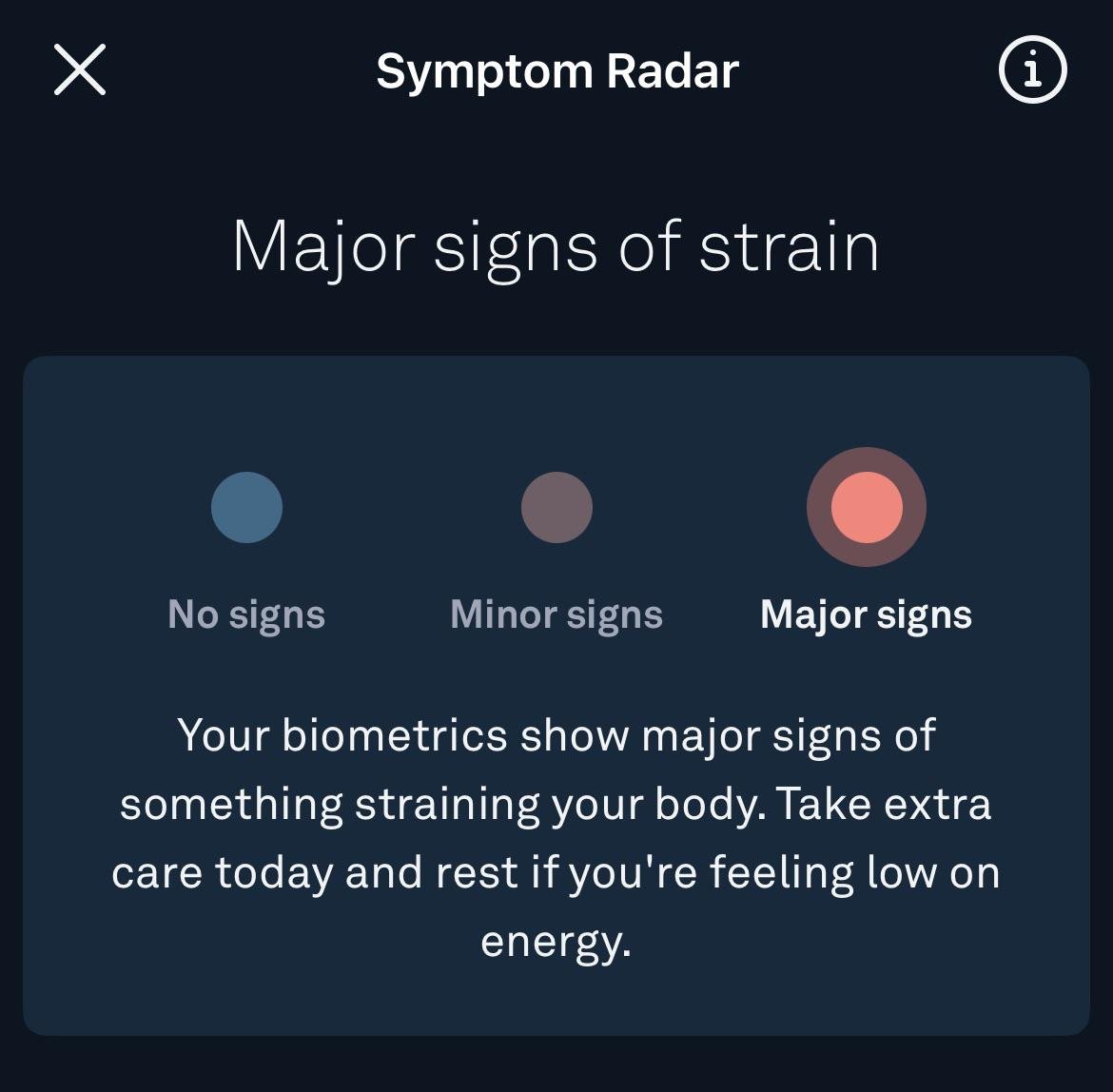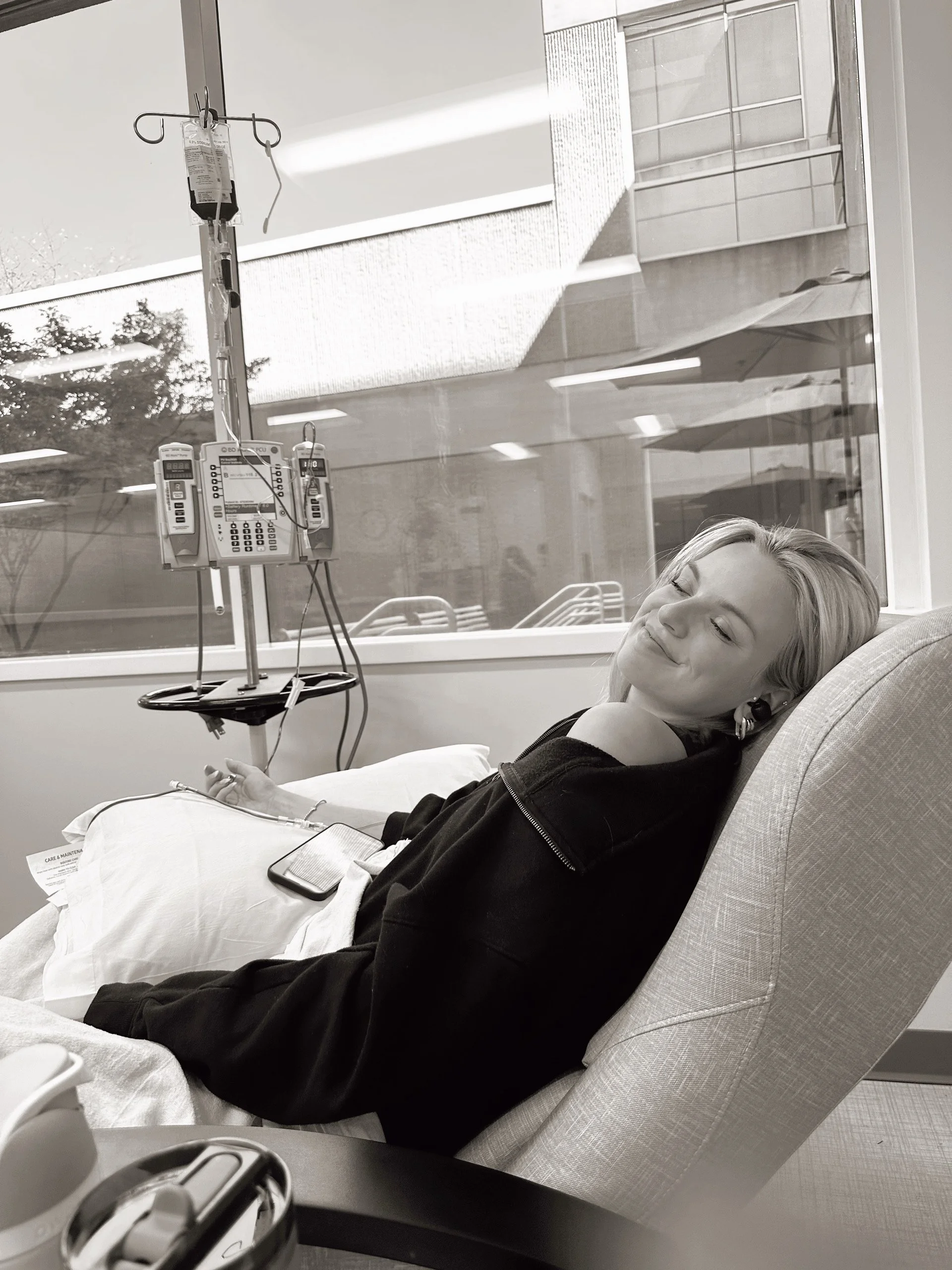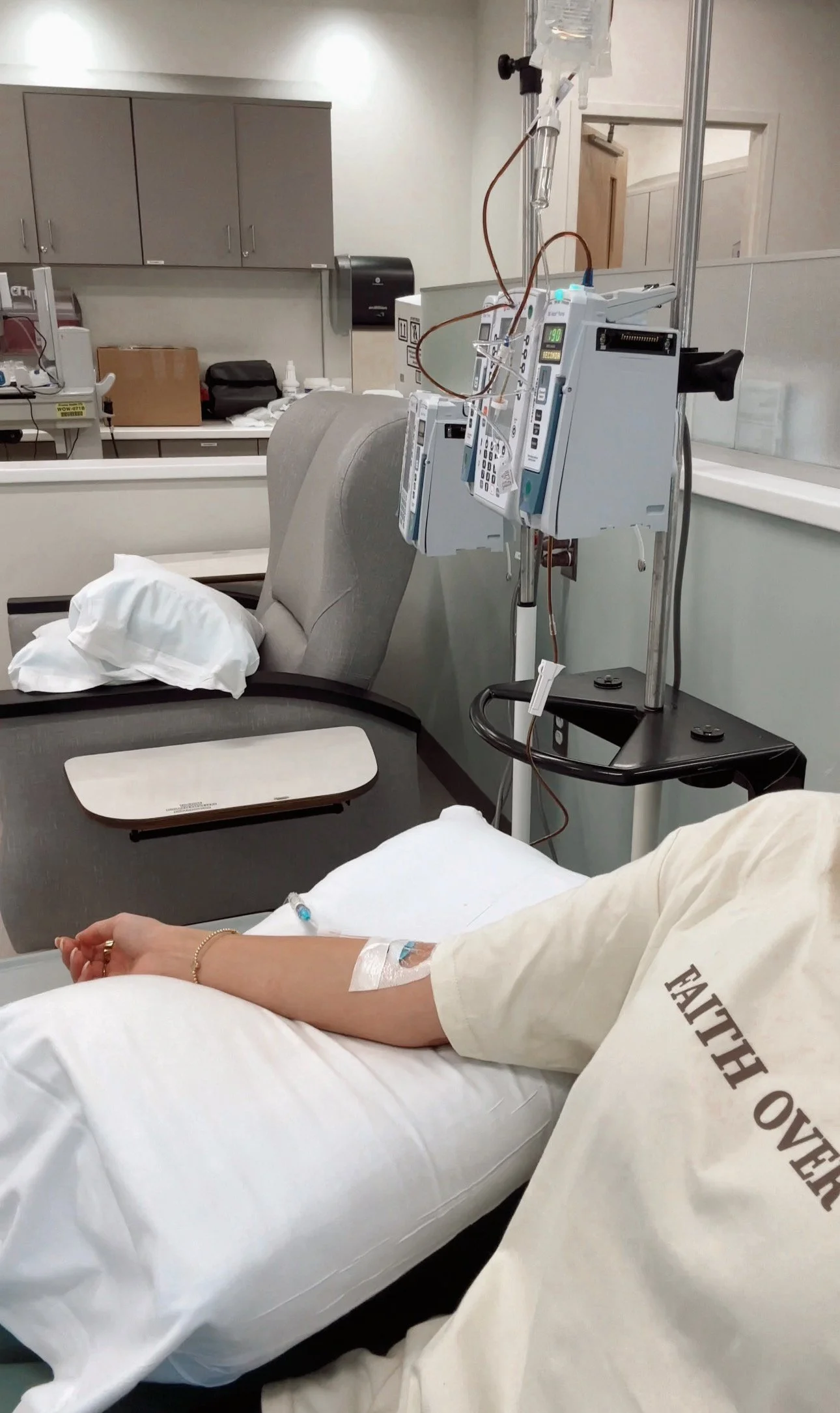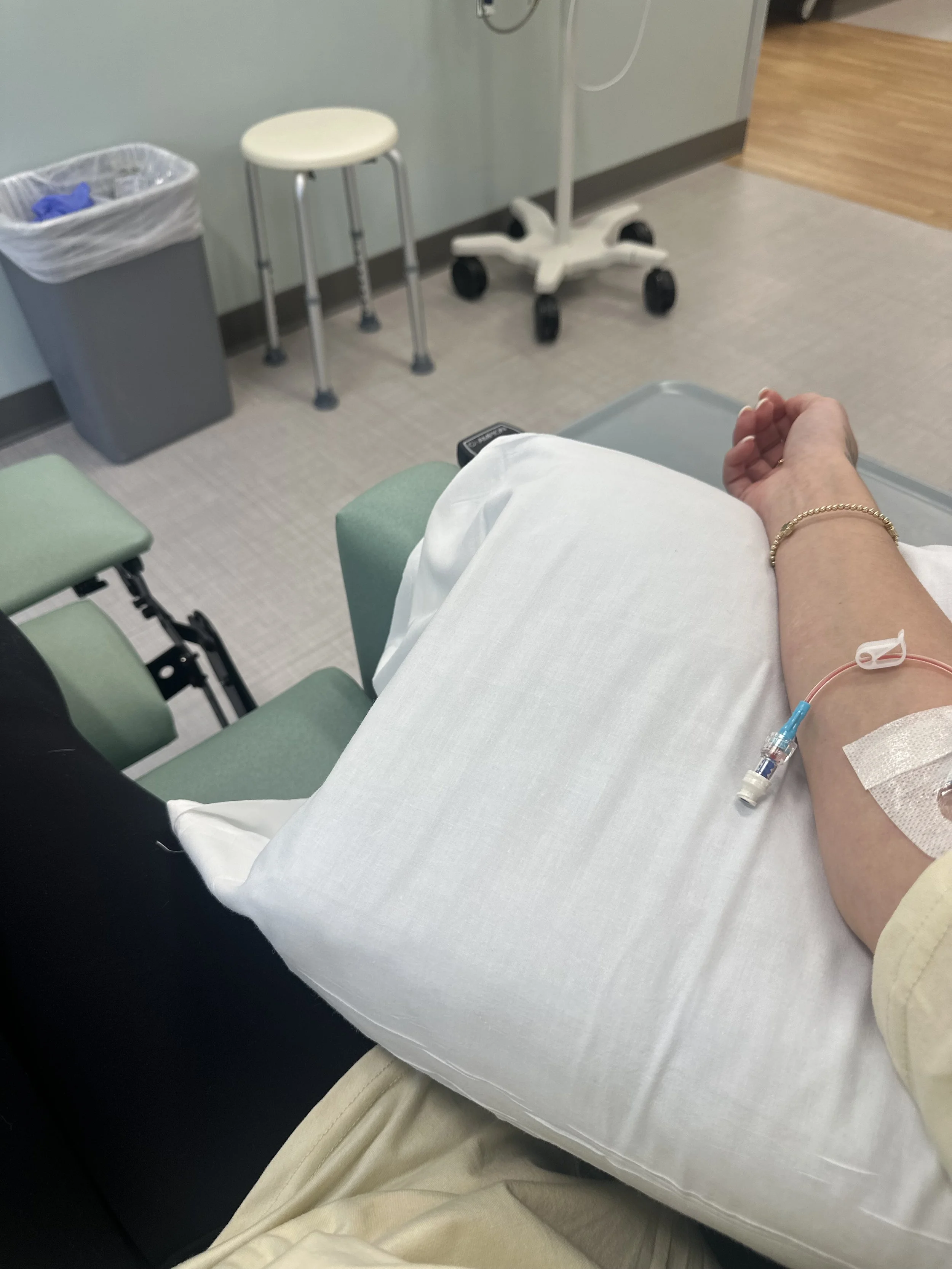the effects anemia can have on the body + mind
finding out i was anemic
Over the past couple of months my physical and mental health took a pretty steep decline. I have had a long battle on/off with anxiety and panic disorder, so when my stress and anxiety levels were through the roof, I figured I was going through another “anxious phase”- which made sense. I mean, I had started college classes, had a full schedule, and lots of other little things that were subconscious worries in the back of my mind.
My anxiety gradually became so severe it was hard for me to even sit in church, go out to eat or even just get groceries. Having dealt with anxiety for most of my life, I understand how it goes for me: I'll have a couple really good months or years even, no anxiety, and then all of a sudden the worry comes back strong. These “phases” vary in length, and sometimes aren’t even connected to anything specific. To me though, this was something different. I had some weird physical symptoms that are typical for me. Firstly, my hands and feet would get super clammy and sweaty out of nowhere. I also experienced random twitching/muscle spasms in different parts of my body but specifically my legs and toes. I also had TERRIBLE restlessness. Specifically restless leg. I had never even had restless leg syndrome before but it's an absolutely awful feeling. Because of all of these little symptoms, I decided to go to the doctor and get checked out. I just knew in my gut something wasn’t right.
When a doctor sees that I have anxiety disorder on my chart, I think it's easy for them to dismiss a lot of symptoms as part of anxiety disorder or stress. We somehow came to the conclusion that I needed to get better sleep, so I was prescribed a “sleeping pill” that actually made by symptoms way worse. This is when I ended up going to the doctor a second time a couple days later. I asked for blood work just to see if anything was a little bit off. I actually prayed that something would be, so I knew I wasn't going crazy. The thing about anxiety is it can manifest into physical symptoms. I am well aware of this, yet once again, I just knew in my gut something was off- and I was right.
My doctor called me telling me that my iron levels were extremely low, and my TIBC (total iron binding capacity) was incredibly high. A high TIBC indicates that my body has an increased capacity to bind/transport iron, which typically occurs because there isn't enough iron available in the blood. Between that, high transferrin levels, and extremely low ferritin, my doctor explained I am iron deficient (anemic).
Immediately it all clicked. Anemia was the cause of my health decline it was crazy to me because I always thought of anemia as just having mild dizziness, or bruising easily, but for some, (depending on the severity) it is so much more debilitating. Because of the severity of symptoms, mixed with the anxiety it was causing, we decided to go forward with iron infusion. The thought of this scared me, but I knew it would help me feel better.
All of this to say, please if you can, try to get your blood work done monthly/every other month, or at LEAST I would encourage you to get blood work done if you feel something is off whether it's physical OR mental.
symptoms + how they are linked to low iron
Symptoms can be different for everyone, but these are the ones that I was experiencing the most that I ended up finding out were directly connected to iron deficiency.
iron and anxiety:
Neurotransmitter imbalances:
Iron is essential for the production of neurotransmitters, such as dopamine and serotonin, which play a role in mood regulation. Low iron levels can disrupt these imbalances, leading to increased anxiety.
Reduced oxygen supply to the brain:
Iron deficiency can impair oxygen delivery to the brain, which can cause symptoms of anxiety, such as restlessness, irritability, and difficulty concentrating.
Increased inflammation:
Iron deficiency can trigger inflammation in the body, which may contribute to anxiety symptoms.
Studies:
Several studies have shown a correlation between low iron levels and anxiety. For example, a study published in the Journal of Clinical Psychiatry found that people with iron deficiency anemia were more likely to report symptoms of anxiety and depression compared to those with normal iron levels.
*Not all people with low iron have anxiety, this was just a huge symptom for me.
Other symptoms:
Symptoms of iron-deficiency anemia may include:
Being pale or having yellow "sallow" skin.
Unexplained fatigue or lack of energy.
Shortness of breath or chest pain, especially with activity.
Unexplained generalized weakness.
Twitching
Restlessness or RLS (Restless Leg Syndrome)
Rapid heartbeat.
Pounding or "whooshing" in the ears.
Headache, especially with activity.
Cold/clammy hands and feet
What can cause low iron?
Poor dietary intake
Lack of iron-rich foods: Your body cannot produce iron, so you must get it from your diet. Inadequate consumption of iron-rich foods over time can lead to a shortage.
Vegetarian and vegan diets: People who do not eat meat may have a higher risk of low iron because the heme iron found in animal products is absorbed more easily than the non-heme iron from plant sources.
Specific foods that hinder absorption: Some foods and drinks can interfere with your body's ability to absorb iron, including coffee, tea, milk, and foods high in calcium and fiber.
Impaired iron absorption
Intestinal disorders: Conditions that affect the small intestine can prevent proper iron absorption. These include:
Celiac disease
Inflammatory bowel diseases
Stomach surgery: Surgical procedures like gastric bypass can limit the amount of iron your body can absorb.
Reduced stomach acid: Certain medications, such as proton pump inhibitors for acid reflux, can reduce stomach acid and inhibit iron absorption.
Increased need for iron
Pregnancy and breastfeeding: The body's need for iron increases significantly during pregnancy to support higher blood volume and provide hemoglobin for the growing baby.
Infants and children: Babies and children need extra iron during periods of rapid growth.
Athletes: Individuals who engage in regular, intense exercise, particularly endurance athletes, have an increased need for iron due to increased red blood cell production and iron loss through sweat.
My Oura ring + Warnings
The Oura Ring is a smart ring that tracks various health metrics like sleep, activity, and body temperature to provide insights into your overall well-being. It uses sensors to monitor heart rate, heart rate variability (HRV), blood oxygen levels, and temperature, with data presented in the companion ‘Oura app’ to give you scores and actionable advice.
I bought this ring originally with the intention of tracking my sleep, and stress levels. I ended up learning a lot about my body especially during this time of being unwell. My stress levels were consistently high, and i noticed my HRV levels were really low. Low heart rate variability (HRV) indicates a decreased variation in the time intervals between heartbeats. This can reflect various underlying conditions or physiological states, including stress, poor sleep, autonomic dysfunction, anxiety/depression, etc.
“Symptom Radar”
The app also sensed that something was straining in my body. I got several alerts like these:
This ring overall helped me realize that what was happening was physical, and promped me to see my physician. It is a great tool for tracking your health, sleep patterns, menstrual cycles, and more. Worth the investment in my opinion.
Though I am not sure the exact reason my iron dropped so low, I can say the infusion was the best route to take for me. I needed to get my health back- and though it isn’t a quick fix, it was what I needed to take steps toward getting healthy again. I truly realized through this experience that I take health for granted. It’s easy to; especially when you are typically always in good health. But after this, I have a newfound gratitude for my body and my mental and physical wellbeing. I also took some time while I was there to pray for the others that were getting infusions. Some with iron or other things, but mostly chemo. I overheard stories of some people who are fighting just to survive. This world can be so cruel. I prayed for their healing and protection.
I am grateful for my nurses, my amazing mother and best friend who kept me company the whole time, my wonderful husband who took care of me when I was weak, and my sweet friends who checked in on me. I could be more grateful for my support system. Below are some photos from the time we spent at the infusion center:
With my newfound gratitude + passion for health, I intend to promote the importance of doctors visits, and listening to your body. No matter how big or small your symptoms, it matters.
Thanks for listening to my story.
Love,
Chloe





